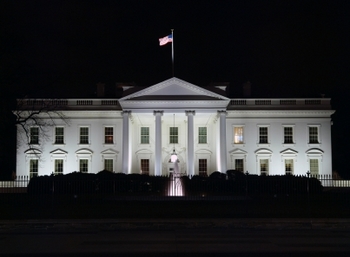
White House website collects and responds to public petitions.
“We the People,” the website operated by the White House, creates a simple system for ordinary Americans to exercise their First Amendment right to petition the administration, but its practical effects remain at best unclear.
When the site was launched in September 2011, President Obama said it would advance his goals of openness and transparency by “giving Americans a direct line to the White House on the issues and concerns that matter most to them.”
Unlike many other open government initiatives which make information about the government available to ordinary people, “We the People” puts citizens’ demands into the hands of the administration. The White House promises to review petitions that reach 100,000 signatures within 30 days and then to issue an official response.
In the year and a half since the website launched, its popularity has exploded. Originally, the White House pledged to respond to petitions with 5,000 signatures. The threshold was first raised to 25,000 in October 2011, and then increased again to 100,000 earlier this year. At that time, the White House said more than 10 million signatures had been collected and nearly 5.5 million people had registered.
But do the petitions have any effect? Some news sources treat the petitions as nothing more than crackpot ravings or elaborate Internet jokes. Some petitions do address oddball topics, whether UFOs or Bigfoot. The White House gave a tongue-in-cheek explanation of its decision not to build a Death Star, the space station from the Star Wars films.
Some supporters of the project disagree, arguing that the website is way to highlight less prominent issues by “making it easier for politically underrepresented groups to mobilize themselves.” By reducing collective action problems, citizens can alert government to issues that matter to them in a way that voting cannot.
But does “We the People” do much more than simply create the illusion of responsiveness? In an interesting twist, one petition called on the White House to “take these petitions seriously instead of just using them as an excuse to pretend you are listening.” More than 37,000 people signed that petition — and the White House responded. The White House reply noted that collecting signatures “does not guarantee that the Administration will change our policy on a specific topic,” but it argued that “petitions posted on We the People have helped spur discussions of important policy issues.”
The White House response also highlighted a number of specific examples where “We the People” made some difference. For example, an animal rights petition asking for closer regulation of commercial breeders selling dogs online apparently prompted the U.S. Department of Agriculture (USDA) to announce the development of a “proposed rule that would cover Internet breeders under the Animal Welfare Act.”
If “We the People” gives citizens a “direct line” to the government, they must in turn accept a return call from the President’s administration. Signing a petition requires a user to create an account with basic identifying information, verifying an email address, and agreeing to receive emails related to signed petitions. Only a signer’s location and first and last initial appear on the public website.
One petition, aggressively promoted by a talk radio host, called for the President to deport CNN commentator Piers Morgan for his promotion of gun control. Instead of dismissing the roughly 109,000 petitioners out of hand, the White House response reaffirmed President Obama’s belief that the “Second Amendment guarantees an individual right to bear arms” and that the “vast majority of gun owners in America are responsible.” The administration response went on to suggest potential gun control provisions, like more careful background checks, that poll well with a broad swath of citizens.
Petitions can serve as a tool for the administration to identify groups of citizens who hold strong views on a particular policy question, especially those who share the administration’s views.
Whether petitions are ultimately effective remains an unanswered question. For now, groups of interested citizens and the Obama administration certainly see the petitions and responses as a way to shape political discourse. The future of online petitioning is unclear, but with registrations continuing to rise and similar petition sites operating in the United Kingdom and European Union, it seems clear that online petition sites will help define the relationship between the people and their governmental representatives for some time to come.



